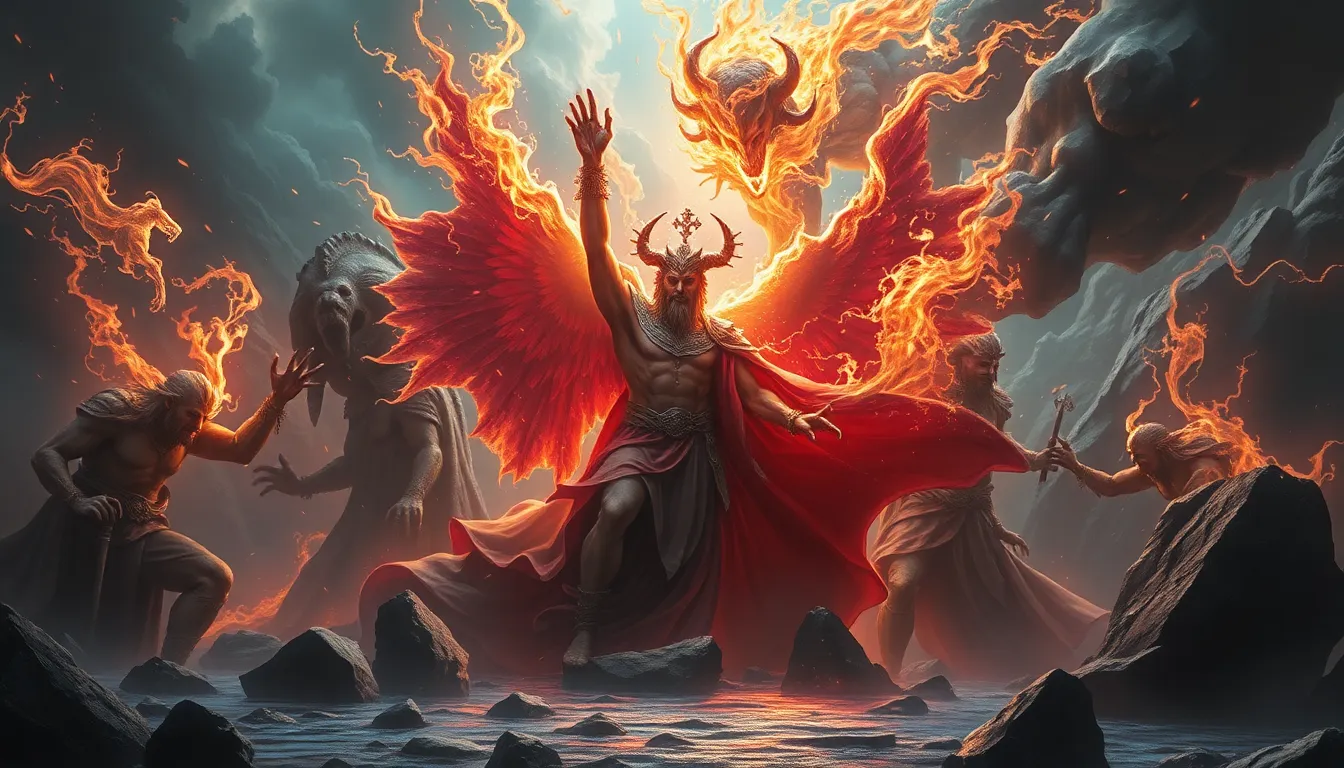When the Gods Punish: Legendary Myths of Divine Retribution
Introduction to Divine Retribution
Divine retribution is a central theme in mythology, embodying the idea that the gods intervene in human affairs, particularly when moral laws are violated. This concept reflects a profound understanding of justice, morality, and the consequences of one’s actions. Across various cultures, myths of divine punishment serve not only as cautionary tales but also as reflections of societal values and ethical standards. This article delves into legendary myths from different cultures that illustrate how the gods administer justice and retribution.
The Concept of Justice Among the Gods
Justice, as perceived by different cultures, varies significantly, yet it often hinges on a moral framework established by the divine. In many mythologies, the gods serve as the ultimate arbiters of right and wrong, enforcing moral order through punishment or reward.
- Morality’s Role: The actions of mortals are frequently judged against the backdrop of divine moral codes.
- Deities of Justice: Various cultures have specific gods associated with justice, such as Themis in Greek mythology, Ma’at in Egyptian culture, and Forseti in Norse beliefs.
Greek Myths of Punishment
Greek mythology is rich with tales of divine retribution, featuring gods who wield immense power over mortals. Key figures in these narratives include Zeus, the king of the gods; Hades, the god of the underworld; and Nemesis, the goddess of retribution.
- Prometheus: The Titan who defied Zeus by stealing fire for humanity was punished by being bound to a rock, where an eagle would eat his liver daily, only for it to regenerate each night.
- Cassiopeia: The vain queen who boasted about her beauty was punished by being turned into a constellation, forever condemned to circle the heavens.
These stories symbolize the consequences of hubris and the belief that one cannot escape divine judgment.
Norse Tales of Retribution
Norse mythology places a significant emphasis on fate, vengeance, and the cyclical nature of justice. The gods are not invulnerable but are deeply intertwined with the destinies of mortals.
- Loki’s Punishment: After causing chaos among the gods, Loki is bound by chains and tormented by a serpent, illustrating the severe repercussions for betrayal.
- The Death of Balder: Balder’s death, orchestrated by Loki, leads to immense grief among the gods and sets in motion the events of Ragnarok, the prophesied end of the world.
Ragnarok itself represents ultimate divine justice, where gods and giants face off, leading to a renewal of the world.
Hindu Perspectives on Divine Punishment
In Hinduism, the concept of karma plays a crucial role in understanding divine retribution. Karma denotes the law of cause and effect, where every action has consequences that can manifest in this life or future reincarnations.
- Mahabharata: The epic showcases numerous instances of divine punishment, particularly in the context of dharma (moral duty) and adharma (immorality).
- Ramayana: The narrative of Rama punishing the demon king Ravana emphasizes the triumph of good over evil and the enforcement of cosmic order.
Deities like Shiva and Vishnu are often depicted as enforcers of justice, intervening in human affairs to restore balance.
Divine Retribution in Ancient Egyptian Mythology
Ancient Egyptian mythology features gods like Ma’at and Osiris, who are intimately linked to concepts of judgment and the afterlife. Ma’at represents truth, balance, and order, while Osiris is the god of the afterlife, overseeing the judgment of souls.
- Weighing of the Heart: This ceremony determines the fate of the deceased, where a heart is weighed against Ma’at’s feather. A heart heavier than the feather signifies a life of wrongdoing, leading to annihilation.
- Fate of the Wicked: Myths illustrate that those who violate Ma’at’s principles face dire consequences, often depicted as being devoured by the monster Ammut.
This process underscores the significance of moral conduct in life and the belief in divine justice in the afterlife.
Mesopotamian Myths of Divine Justice
The ancient Mesopotamians viewed their deities, such as Enlil and Ishtar, as enforcers of justice, often intervening in human affairs to maintain order.
- Epic of Gilgamesh: This epic contains themes of divine punishment, particularly in the story of Gilgamesh’s journey and the consequences of his actions.
- Ishtar’s Retribution: In her quest for love, Ishtar punishes those who reject her, showcasing the capricious nature of divine justice.
These myths influenced societal norms and expectations regarding moral behavior and divine oversight.
Indigenous Myths and Local Beliefs on Divine Retribution
Many indigenous cultures possess rich mythologies that illustrate the consequences of human actions through stories involving nature and spirits.
- Native American Myths: Often feature trickster figures who teach lessons about morality and respect for nature.
- African Folklore: Many tales emphasize the importance of community and the repercussions of individual transgressions against societal norms.
These narratives highlight the interconnectedness of humans and the natural world, often reinforcing the idea that actions against nature or community will lead to divine retribution.
Modern Interpretations and Adaptations of Divine Retribution Myths
The influence of ancient myths on contemporary literature and media is profound, with themes of divine punishment resonating in various forms.
- Film: Many movies explore the consequences of human actions, echoing ancient narratives of divine justice.
- Literature: Modern novels frequently draw upon mythological themes to explore morality and justice.
- Popular Culture: Video games and graphic novels often incorporate mythological elements, emphasizing the ongoing relevance of these stories.
These adaptations highlight the enduring nature of divine retribution myths and their applicability to contemporary moral dilemmas.
Conclusion: The Enduring Legacy of Divine Retribution Myths
The myths of divine retribution serve as powerful reminders of the moral frameworks established by various cultures. Through tales of punishment and justice, these stories reflect humanity’s understanding of ethics, the consequences of actions, and the belief in a moral order maintained by higher powers. Despite the passage of time, the themes embedded in these myths continue to resonate, providing insight into the human condition and our quest for justice.




